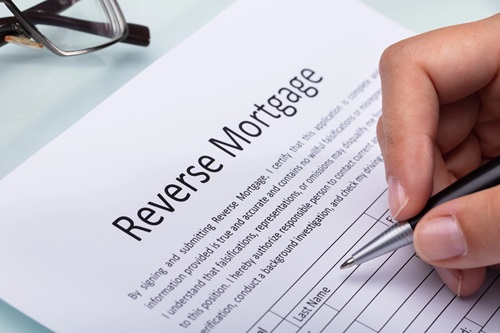
A reverse mortgage can offer financial relief to homeowners who are seeking to use their home equity in retirement. While this option works well for many couples, there are situations where only one spouse qualifies for the loan. When that happens, the other becomes what’s known as a non-borrowing spouse. Before taking this step, it’s essential to understand how this affects both parties—especially when life changes occur.
Because reverse mortgages carry long-term implications, couples need to be informed about what happens if the borrowing spouse dies or leaves the home. With the right planning, both individuals can feel secure moving forward.
Who Qualifies as a Non-Borrowing Spouse in a Reverse Mortgage?
In some cases, only one person in a couple meets the age requirement for a reverse mortgage, which is typically 62 or older. If the younger spouse doesn’t qualify, they may still live in the home as a non-borrowing spouse. To receive certain protections, they must:
- Be legally married to the borrower when the loan closes
- Remain married to the borrower throughout the loan’s duration
- Live in the property as their primary residence
- Be listed as a non-borrowing spouse in the loan documents
- Attend required financial counseling with the borrower
Upon meeting these conditions, the non-borrowing spouse may can remain in the home if the borrower dies or moves into long-term care.
What Happens If the Borrower Leaves the Home?
 reverse mortgage in Hilton Head Island SC
reverse mortgage in Hilton Head Island SCTypically, a reverse mortgage in Hilton Head Island SC becomes due if the borrower either passes away or moves into a long-term care facility for more than a year. However, if there’s an eligible non-borrowing spouse involved, the loan enters a deferment period. During that time, the lender pauses collection efforts and freezes any remaining credit lines.
This arrangement allows the spouse to stay in the home, but only if they continue to:
- Live in the home as their main residence
- Maintain the property
- Pay property taxes and home insurance
- Avoid defaulting on the terms of the loan
By staying compliant with these rules, the non-borrowing spouse can avoid immediate displacement.
How Reverse Mortgage Protections Have Improved
Not long ago, surviving spouses faced the possibility of losing their home after the borrower passed away. However, recent updates have added new protections. For example, the Department of Housing and Urban Development (HUD) issued changes that now:
- Remove the need for non-borrowing spouses to prove ownership
- Extend protections if the borrower enters long-term care
- Include partners from same-sex marriages, provided they were legally married before the borrower’s death
These updates have created a more secure path for spouses who are not on the loan but live in the property.
Why Not All Spouses Qualify for Reverse Mortgage Protections
Although many non-borrowing spouses meet the criteria, some do not. Certain scenarios immediately affect eligibility. These include:
- Moving out of the home after the loan begins
- Getting divorced after the loan closes
- Not being listed as a non-borrowing spouse in official documents
- Living in a separate residence from the borrower
Additionally, if the borrower remarries after taking out a reverse mortgage in Hilton Head Island SC, the new spouse will not be protected unless the borrower refinances and includes them in a new loan.
Once the borrower is no longer living in the home, the reverse mortgage will become payable. If there is no eligible non-borrowing spouse, the loan must be settled—either through repayment or the sale of the property. However, if an eligible spouse remains, they may stay in the home as long as they meet the ongoing requirements.
While they can continue living there, they won’t receive any remaining payments from the loan, and they will not have access to unused credit.
Couples exploring a reverse mortgage need to have an open conversation about what could happen if one of them is not included on the loan. It’s important to work with Reverse Mortgage Specialist of Hilton Head who can help you weigh the risks, ask the right questions, and create a plan that secures both parties. Because long-term financial stability is the goal, being proactive helps prevent stress or surprises later on.
Need guidance on reverse mortgage eligibility and spousal protections? Call Reverse Mortgage Specialist of Hilton Head now to speak with a specialist who can help you plan with confidence.
Reverse Mortgage Specialist of Hilton Head
Hilton Head Island, SC 29926
(854) 842-2505
https://www.reverse-info.com/
Areas Served: North Myrtle Beach, Carolina Forest, Socastee, Forestbrook, Conway, Surfside Beach, Little River, Myrtle Beach, Columbia, Charleston, Greenville, Hilton Island


No comments:
Post a Comment